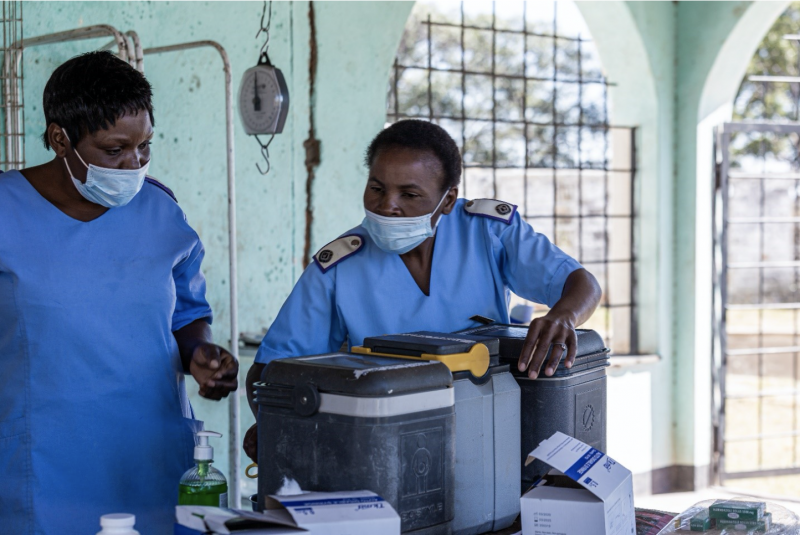
Stories from the field: How vaccines can help to prevent antibiotic resistance - Zimbabwe’s response to drug-resistant outbreaks of typhoid and cholera
September 13, 2021
Antibiotic resistance is a natural phenomenon that happens when bacteria develop the ability to defeat the drugs designed to kill them. The germs change over time, no longer responding to medicines thus making infections harder, and sometimes impossible, to treat. This, in turn, results in higher health care costs for both individuals and governments. “Preventing and controlling antibiotic resistance calls for a multi-pronged approach, of which vaccines is one”, says Dr Stanley Midzi, WHO Health Systems Strengthening Advisor.
What was the problem?
In recent decades, Zimbabwe has experienced large outbreaks of antibiotic-resistant strains of both cholera and typhoid.
Typhoid fever is a highly contagious bacterial infection that can spread throughout the body, affecting many organs. Without prompt treatment, it can cause serious complications and can be fatal. A large typhoid outbreak (with more than 3000 suspected cases) between October 2017 and February 2018 was caused by an antibiotic (ciprofloxacin)-resistant strain. This meant that the first-line antibiotic of choice to treat typhoid (ciprofloxacin) was no longer effective – the bacteria had become resistant to the available antibiotic.
“In the recent past, Zimbabwe has been affected by a number of typhoid outbreaks, with cities like Harare, Bulawayo and Gweru often becoming the epicenters due to chronic poor hygiene practices in an environment with chronic shortage of clean water supplies and compromised sanitary facilities (WASH)” says Zimbabwean Vice President and Minister of Health and Childcare Hon Dr Constantino Chiwenga.
Zimbabwe then experienced a large cholera outbreak between September 2018 and March 2019. Cholera is another bacterial infection that causes severe diarrhoea and dehydration, which can advance to shock and seizures. If not treated immediately, cholera is fatal. The outbreak was caused by a Vibrio cholerae strain that was found to be highly resistant to nearly all antibiotics. The outbreak strain had 14 additional antimicrobial resistant (AMR) genes carried on a plasmid. This prompted the government to declare a state of emergency. To deal with the outbreak, it was necessary to change the patient management guideline from the cheaper fluoroquinolone antimicrobial, ciprofloxacin, to a more expensive macrolide called azithromycin.